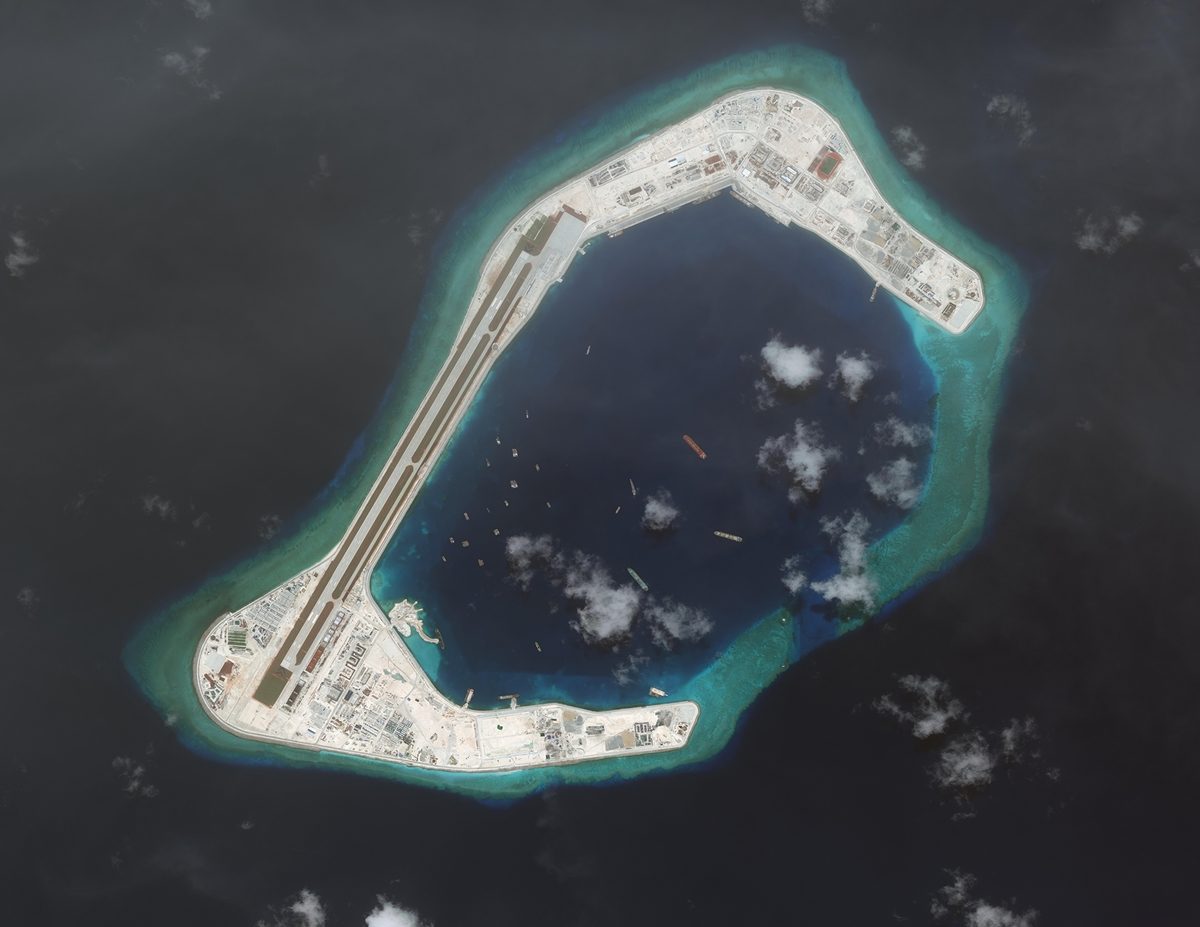SUMMARY
This is AI generated summarization, which may have errors. For context, always refer to the full article.

Naval powers France, Germany, and the United Kingdom expressed their opposition to China’s expansive claims in the South China Sea, adding their weight to increasing world pressure over Beijing’s actions in the area.
The 3 European counties – collectively known as E3 – reaffirmed their positions in a note verbale addressed to the United Nations (UN) on Wednesday, September 16, stressing the need to abide by the rule of law in the highly volatile waterway. France, the UK, and Germany are state parties to the United Nations Convention on the Law of the Sea (UNCLOS).
The 3 countries’ notes are the latest in a flurry of communications filed by Southeast Asian countries, the United States, and Australia against a series of circular notes filed by Being in relation to Malaysia’s application to define the limits of its extended continent shelf.
While these were filed in relation to Malaysia’s application, France, the UK, and Germany’s notes verbales only refer to the series of notes China submitted to the UN.
What they’re saying
In similar notes verbales sent by all 3 countries, the naval powers said they “recall the universal and unified character of UNCLOS that sets out the legal framework within which all activities in the oceans and seas must be carried out, and underscore that the integrity of the Convention needs to be maintained.”
The 3 countries also stressed the importance of open and unhampered access to the strategic waterway. They rejected China’s attempt to claim most of the South China Sea by claiming baselines and internal waters between island groups as it emphasized “specific and exhaustive conditions” for such were for “naturally formed land features.”
“Land building activities or other forms of artificial transformation cannot change the classification of a feature under UNCLOS,” the countries said. China is notorious for venturing on an island-building campaign in the disputed waters, militarizing maritime features located in several Southeast Asian countries’ exclusive economic zones.
Aside from this, France, UK, and Germany rejected China’s “historic rights” over the South China Sea, saying this did not comply with international law and UNCLOS. In doing so, the 3 countries also asserted “the arbitral award in the Philippines v. China case dating to 12 July 2016 clearly confirms this point.”
Why this matters
The European countries’ latest statement comes after the US stepped up its pressure against China, signaling what many analysts view as a looming Cold War between Washington and Beijing.
France, the UK, and Germany’s position also followed recent high-profile virtual meetings between Europe and China, where European countries took increasingly tougher stances in their China policy.
Retired Philippine Supreme Court justice Antonio Carpio and internationally-renowned lawyer Paul Reichler had pointed out that the effort of countries to invoke the ruling and call out China’s expansive claims was one of the best ways to enforce the landmark 2016 Hague ruling. – Rappler.com
Add a comment
How does this make you feel?
There are no comments yet. Add your comment to start the conversation.